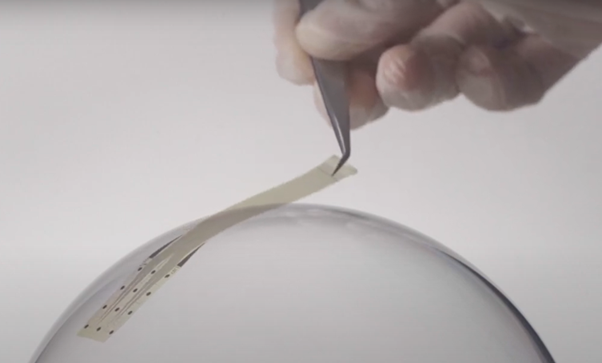
A world’s first human graphene-based brain computer procedure was performed at Salford Royal Hospital.
The world’s first human procedure of INBRAIN Neuroelectronics saw its cortical interface used in a patient undergoing brain tumour surgery.
The Brain Computer Interface (BCI) technology has been used for medical diagnostics acting as communication devices for people who can’t speak, as well as being able to control external equipment like robotic limbs.
The study was sponsored by the University of Manchester, and the clinical investigation study was conducted at Salford Royal Hospital, part of the Northern Care Alliance NHS Foundation Trust in Manchester.
The study was led by Chief Clinical Investigator Dr. David Coope, a neurosurgeon at the Manchester Centre for Clinical Neuroscience, who explained the importance of the use of Graphene in the procedure.
As he said: “Graphene provides ultra-high density for sensing and stimulating, which is critical to conduct high precision resections while preserving the patient’s functional capacities, such as movement, language or cognition.”
The successful surgery also found that the metal was responding to signals that others could not achieve.
As INBRAIN shared that the BCI technology is also able to differentiate between healthy and cancerous brain tissue with micrometer-scale precision.
Following the success of the procedure, the future aim is to now become a reliable tool for use in precision surgery for diseases such as cancer, as well as being used in neurotechnology more broadly.
The advanced medical equipment also intends to transform its technology one step further, making it into a therapeutic tool for patients with neurological issues such as Parkinson’s disease.
The success of this application is a huge milestone in medical science, and represents a significant advancement in the ability of graphene-based BCI technology beyond decoding and translating brain signals.
The excitement of the procedure cannot be overstated, with CEO and Co-Founder of INBRAIN Neuroelectronics, Carolina Aguilar, adding: “The world’s first human application of a graphene-based BCI highlights the transformative impact of graphene-based neural technologies in medicine.
“This clinical milestone opens a new era for BCI technology, paving the way for advancements in both neural decoding and its application as a therapeutic intervention.”















Recent Comments